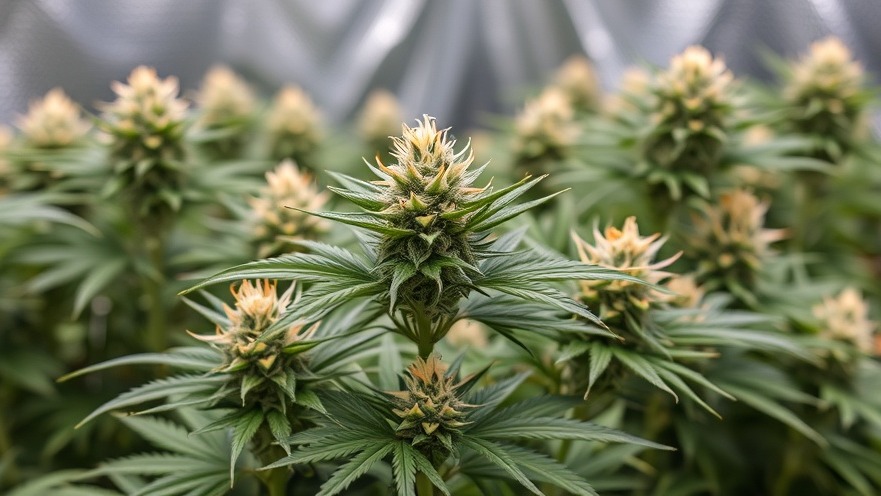
THC: A Lifeline for Rural Texans
As discussions surrounding the banning of hemp-derived THC heat up in Texas, many residents of rural areas express that these products have become essential to their health and local economies. In communities ravaged by drug addiction and health issues, THC has emerged not as a negative force but as a potential remedy. These individuals argue that it offers a safer alternative to alcohol and opioids, substances that have claimed far too many lives.
The Agricultural Roots of THC Acceptance
The story of THC in rural Texas is deeply intertwined with agriculture. Farming communities like Belleville, with populations as small as 4,000, have embraced hemp products as part of their economic lifeblood. For example, Andy Melder, a veteran and founder of Warriors Integrating Possibilities, points out that in his hometown, out of 30 storefronts, three are dedicated solely to CBD sales. This is not trivial; it speaks to a significant economic shift that has positive implications for local businesses and farmers.
The Health Crisis in Rural Areas
Rural communities across Texas face unique health challenges that further amplify their reliance on THC. Many residents are dealing with chronic illnesses as well as mental health issues, often exacerbated by limited access to healthcare services. In this light, the availability of cannabis products appears to be a beacon of hope. Timothy Mabry, a former firefighter from Canyon Lake, emphasizes that the dangers posed by alcohol abuse far outweigh those linked with cannabis. The accessibility of hemp-derived THC gives residents the chance to seek relief where traditional medicinal options may fall short.
Legislative Battle Over THC
Despite its perceived benefits, a bill recently passed by the Texas Senate seeks to ban products containing THC, stirring up significant concern among rural populations. This legislation, championed by Senator Charles Perry, aims to criminalize any cannabinoid that isn't CBD or CBG, effectively shutting down a critical line of health support for many. Farmers and THC proponents are vocal about the catastrophic impact such a ban would have in their communities, where the economic fabric is already fragile.
Voices of Opposition
While the push for the ban gathers momentum, opponents raise valid concerns regarding regulation and safety. Some fear that the current THC industry lacks oversight and that its availability might lure in younger demographics. However, rural residents argue that they have a right to choose and that THC has only improved their quality of life in the absence of alternative therapeutic strategies.
The Future of THC in Rural Texas
As lawmakers continue to wrestle with the implications of the emerging THC market, many Texans reflect on a hopeful future where this versatile plant can help overcome health and economic challenges. The intertwined fate of THC and rural communities speaks volumes about regional resilience; these towns are not mere victims of substance abuse but are actively seeking solutions that religion and politics often overlook.
For individuals looking to understand the potential risks and rewards of THC in rural settings, or for those who care about the health of Texas communities, this ongoing story is far from over. The debate regarding the legality and impacts of THC will continue to unfold, with its ramifications felt deeply across many sectors of rural life. The voices sharing their stories today will shape the policies of tomorrow.
 Add Element
Add Element  Add Row
Add Row 



Write A Comment